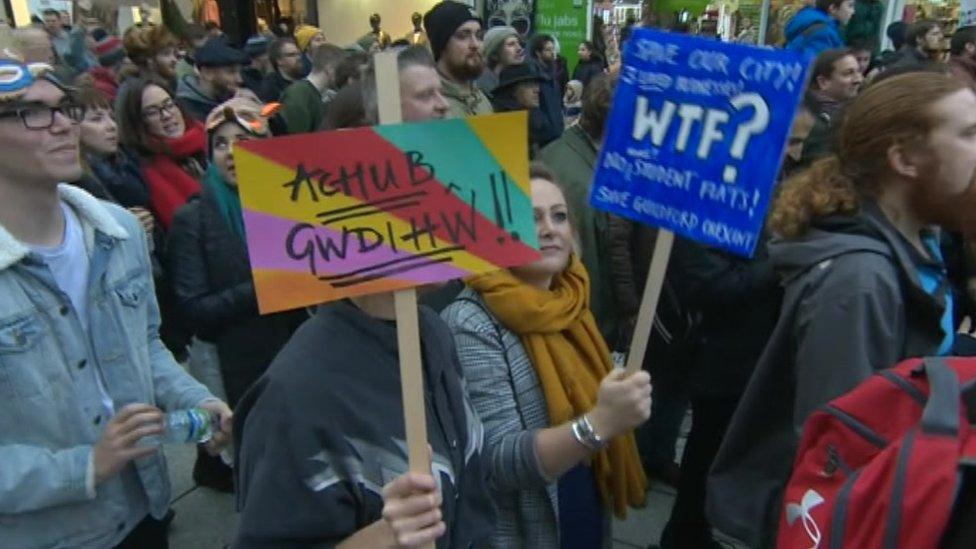Music: Venue buying plan aims to protect Wales' future
- Published
Music Venue Trust wants to buy live music venues across Britain to keep them open.
A bid to buy grassroots music venues will help protect the Welsh music scene for generations, those backing the plan have said.
The Music Venue Trust (MVT) wants to raise £3.5m to purchase nine properties across Britain.
Among them are The Bunkhouse in Swansea and Newport's Le Pub.
Project leaders said they wanted to become a "National Trust" but buying music venues instead of stately homes.
MVT warned that more than a third of grassroots music venues in the UK have closed in the past 20 years.
It said over 90% of venues were tenants renting their sites, with the average lease left at just 18 months.
"The best people to own music venues is the music industry itself," said Mark Davyd, MVT's founder and chief executive.
"I'm not criticising landlords, I'm not criticising private investors. I'm just saying their motivations are profit."
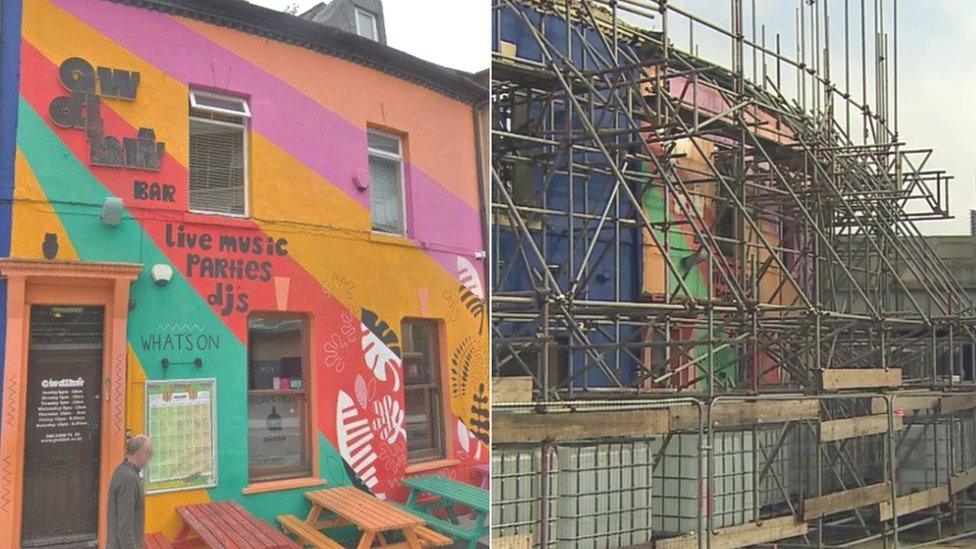
Then and now: Only the façade of Cardiff music venue Gwdihw remains
The trust cited the case of Cardiff's Gwdihw as an example where the city lost a vibrant and popular venue to redevelopment.
Despite protests and a 20,000-name petition, all that remains is the listed façade, while a 30-storey apartment block is now being built on the Guildford Crescent site.
"That was an extremely important community facility, it was incredibly loved by the local music community and the community around it," Mr Davyd said.
"This isn't just about money, it's about where do our communities gather, where do our artists start, how do we develop their careers?"

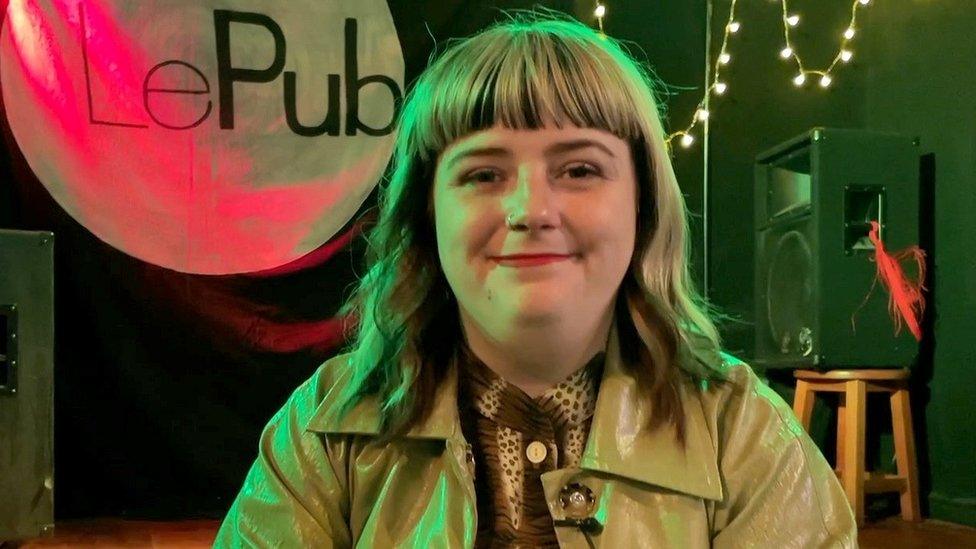
Singer Katie Hall says venues such as Le Pub have been vital for her band and the music community
'Venues are communities'
Few know better than Katie Hall how small independent music venues can help artists.
The singer with south Wales Valleys' trio Chroma said Le Pub has been like a second home for the band - not just a place to perform, but to build industry relationships and, just as importantly, friendships.
"Le Pub has always been there for us as a band and as people," she said.
"I think having a place where you can go and you can meet other people and you can hone in your craft as musicians is so important.
"But I also feel really safe here, as a woman, as a performer.
"I think it is important culturally, music at its core is about human experience."
The singer said grassroots venues have become even more important as Wales emerges from the Covid pandemic.
"People need places where they can go to enjoy themselves, people need places where they can feel safe, and people need places where they can feel like they can express themselves clearly.
"When you lose a music venue, you lose a community."

Under the trust's plan, it has set up another venture called Music Venue Properties.
It is a community benefit society that will raise investments through issuing shares, with that money then spent buying freeholds on venues such as Le Pub.
It will become the new landlord, but with the remit of protecting grassroots music at those venues indefinitely.
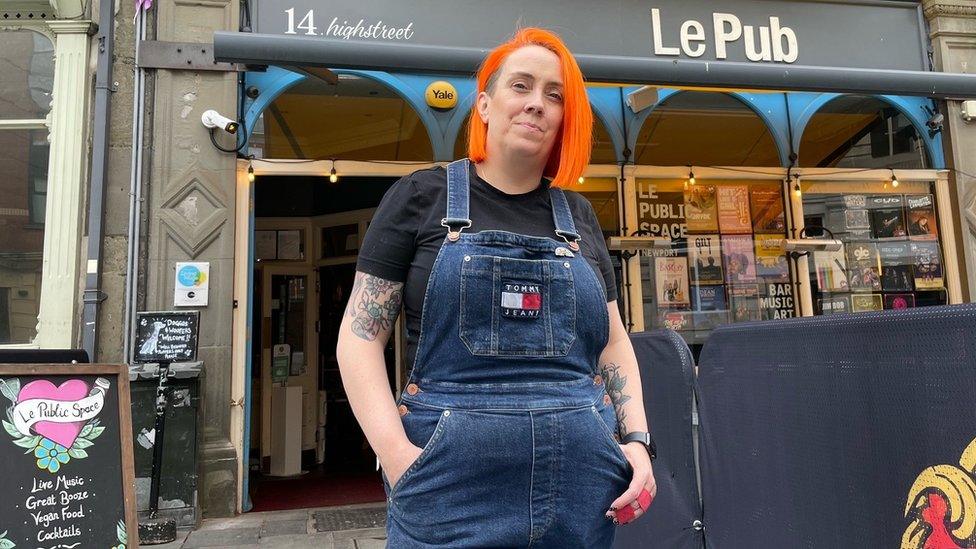
Le Pub manager Sam Dab says landlords on the side of music venues will make a "huge difference"
Newport's Le Pub has already been supporting emerging and mainstream artists for a quarter of a century.
Manager Sam Dab said she was delighted her venue was one of those named in the pilot scheme.
"Le Pub as a business is already a community asset and community owned, but we work with a private landlord," she explained.
"To have a landlord that is sympathetic to what we do, understands what we do, and supports what we do would make a massive difference."
The venue has weathered the pandemic, but fears a repeat of those lockdowns in future and the growing cost of living makes it an extremely challenging environment for the independent music venue sector.
"Rent is the biggest worry we have, whereas the whole point of Music Venue Properties is to ensure that in those situations, music venues that are community assets are protected."
- Published29 May 2022
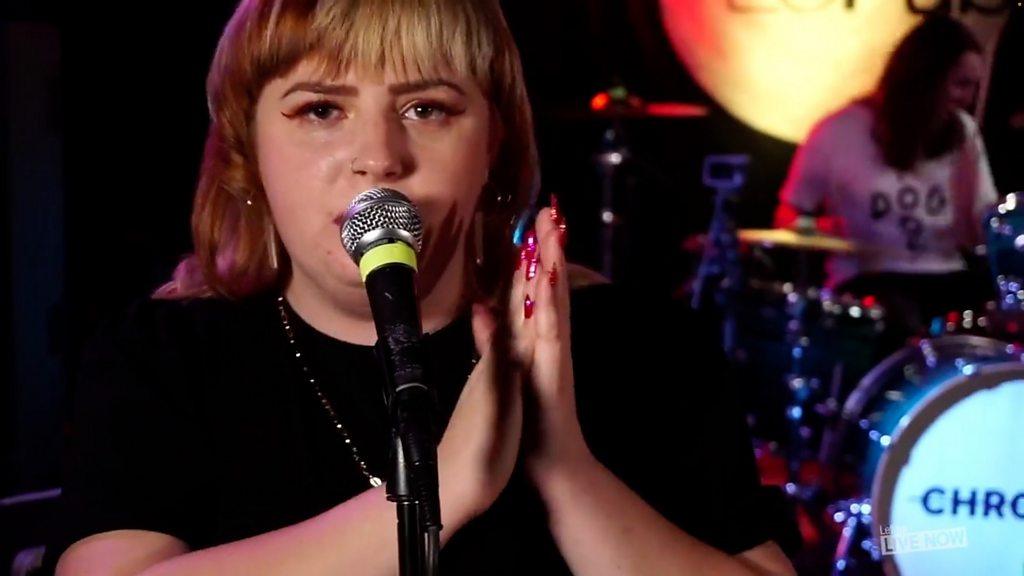
- Published25 April 2022
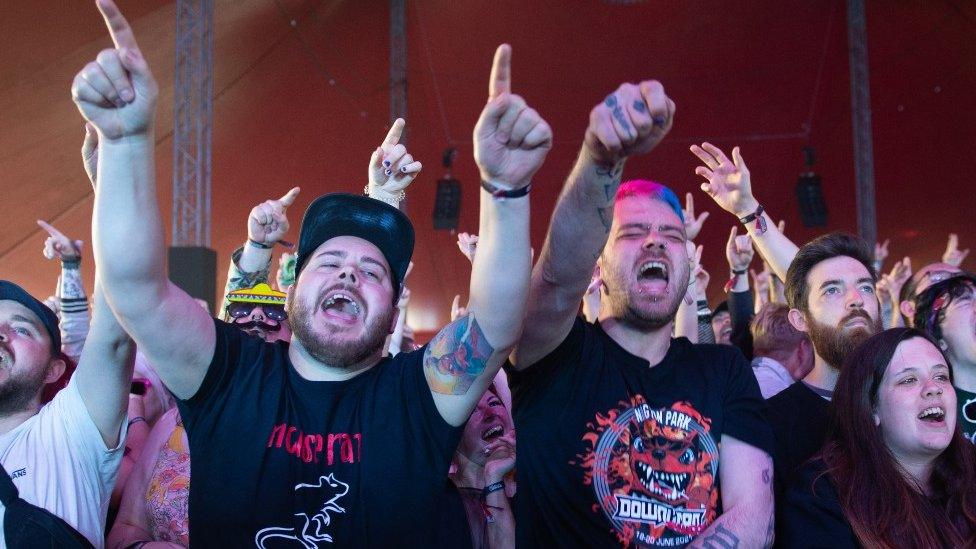
- Published29 January 2021
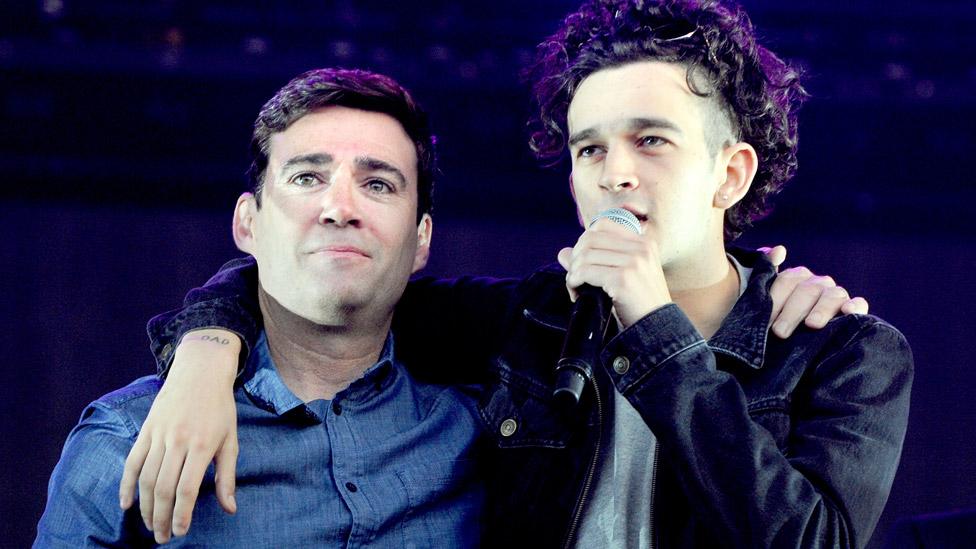
- Published19 January 2019
